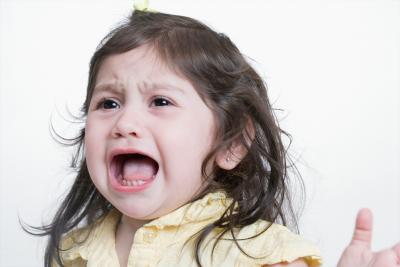Parents can have a better idea of whether a child’s behavior is normal if they know what to expect. Since not all children are predictable and easy going, what defines normal childhood behavior varies and depends on a child’s age, developmental stage and own personality. Behavioral problems among preschoolers may involve long-lasting temper tantrums, disruptive behavior or both physical and verbal aggression.
Coping Strategies
The American Academy of Pediatrics recommends several basic coping strategies for dealing with a young child’s difficult behavior. The first thing a parent needs to understand is that a child’s temperament significantly affects his behavior. Bear in mind that your preschooler might not be trying to irritate you intentionally.
Concentrate on the here and now. Don’t worry about what might happen later. Prioritize your child’s issues so that you can give more attention to those problems that are more important at the moment. Try to avoid situations that tend to bring on unruly behavior. Spend some time away from your child, and don’t be afraid to ask for help from professionals who are experts in child behavior.
Changing Behavior
One effective way to change a child’s behavior is to reward desirable behavior and ignore problem behavior. Children generally stop behavior that is ignored. While misbehavior is often a child’s way of seeking attention, remaining calm and consistently ignoring the unwanted behavior will eventually result in fewer power struggles. Do your best not to overreact to a situation. Continue to reinforce desired behavior so that your child learns that inappropriate behavior will not be tolerated. Avoid confusing your child by sending different messages. Be clear about the rules and the consequences for breaking them. If you aren’t consistent when it comes to discipline, your preschooler may have trouble making the connection.
Rewards
Choose age appropriate rewards that your child will enjoy. A reward may be a favorite snack, earning a privilege or allowing the child to stay up a little past her normal bedtime. Clearly explain to your child what behavior you expect for her to earn a reward. If your child misbehaves, avoid giving her attention, including negative attention. The earlier you establish the rules, the more likely you are to succeed in teaching your child what you consider to be acceptable behavior.
Warning
Although all children need to learn the difference between acceptable and unacceptable behaviors, disciplining a child by spanking fails to change a child’s behavior. The American Academy of Family Physicians cautions that regular use of physical punishment may also cause a child to behave more aggressively.
Prevention
Parents can take several steps to encourage a preschooler to behave well. Accept your child for who he is rather than trying to change his basic personality. Give your child lots of affection and positive attention. Try to avoid situations that may cause him to be bored or overly stimulated. Don’t get involved in activities outside your family’s normal routine when your child is cranky or tired.





